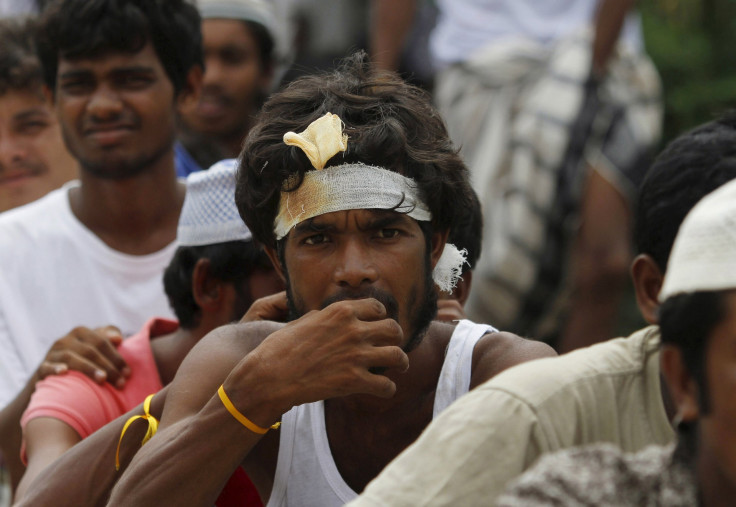Thailand Announces 'Transit Area' To Provide Humanitarian Aid To Displaced Rohingya Migrants: Report

Thailand announced Monday that it is planning a “transit area” for displaced Rohingya migrants who have been rejected by Asia Pacific countries as thousands remain stranded at sea. The transit area will be used to provide humanitarian assistance to the migrants, but not a permanent shelter or confinement.
Deputy Prime Minister Prawit Wongsuwan said that the transit area would be used only until the migrants are relocated, the Bangkok Post reported.
The decision was taken after a United Nations body criticized regional nations’ response to the migrant crisis. "Everything will be based on international principles because Rohingya are human beings," he said, according to the Bangkok Post.
Asked if he was worried about the possibility of the transit area attracting more of the thousands of Rohingya migrants left adrift, he said it was not a concern. “Don’t think too much. We will do everything the Rohingya need. We have done this in the past, not only with the Rohingya but also with Lao and Cambodian migrants,” he reportedly said.
The Rohingyas are denied citizenship and voting rights in their native Myanmar, and have fled the country in massive numbers through maritime smuggling networks.
Prawit also defended his country’s treatment of the asylum seekers, saying: “They [the Rohingya] are demanding to go to a third country.”
“So please be careful in your choice of words. What we are doing cannot be called ‘pushing’. We are giving them humanitarian assistance but we also have to follow the immigration laws of Thailand,” he said, according to Phuket News.
In recent weeks, Malaysia, Thailand and Indonesia have all turned away boats with hundreds of migrants. The International Organization for Migration estimates that about 8,000 migrants are currently adrift in the Andaman Ocean and Malacca Straits, but other estimates have gone as high as 20,000.
High-level regional talks have begun in Malaysia to address possible solutions to the issue and present a coordinated plan to the Association of Southeast Asian Nations (ASEAN), the regional body currently chaired by Malaysia.
Reports of violence, dwindling food and water supplies, and diseases have underscored the urgency of the situation on the dilapidated boats where the migrants are often abandoned by people smugglers.
© Copyright IBTimes 2024. All rights reserved.











